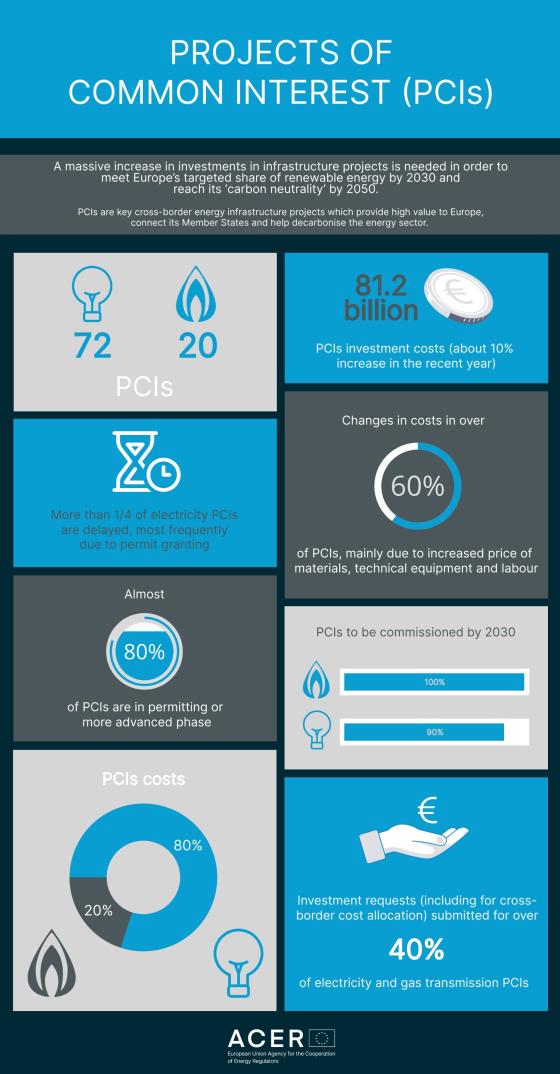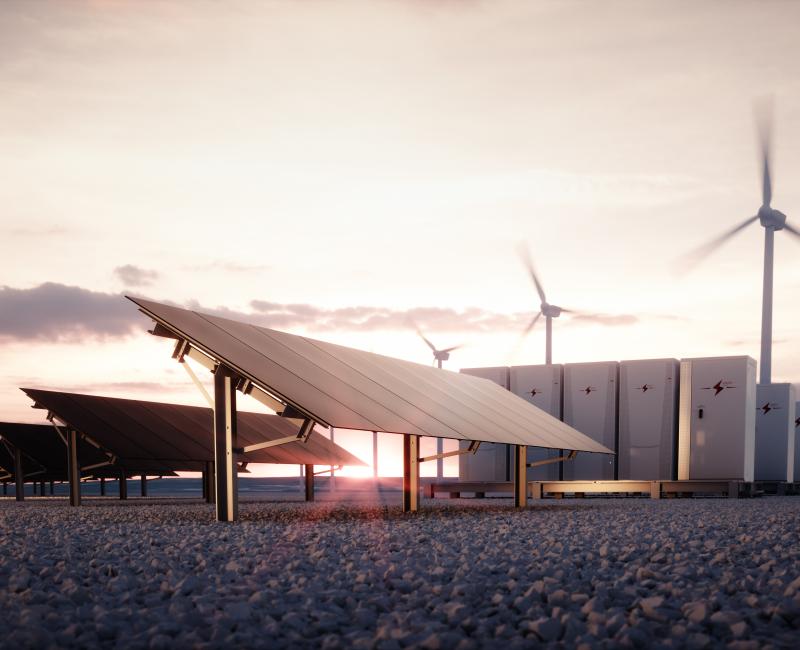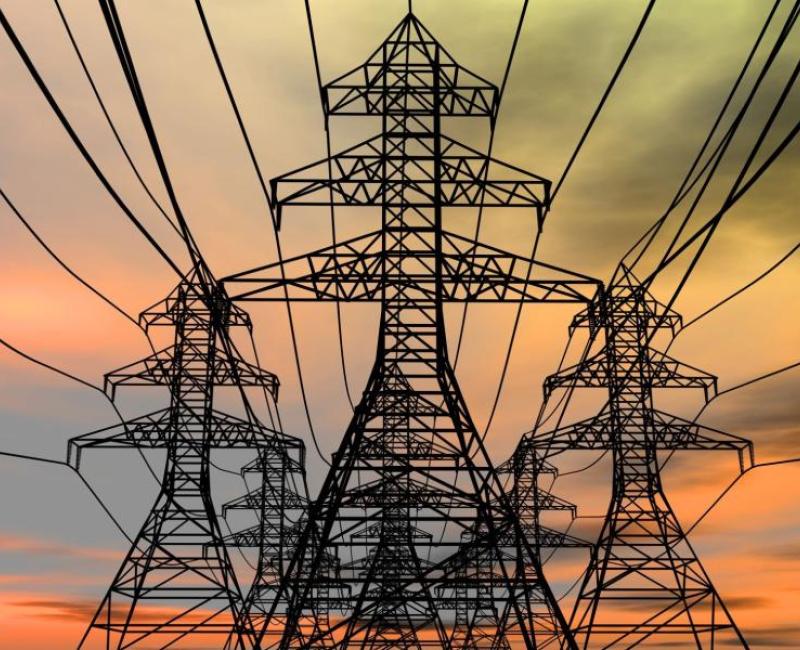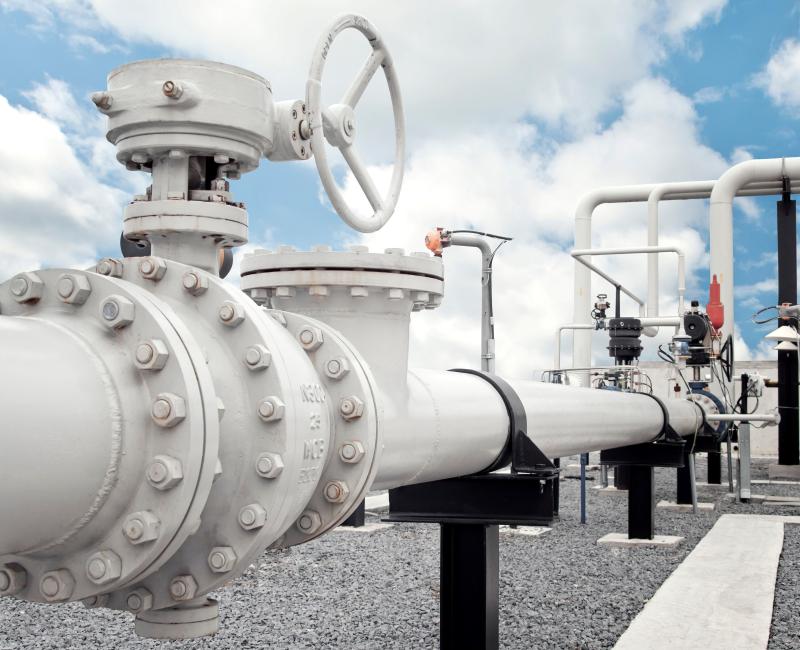ACER webinar on amendments to the European electricity grid connection network codes
ACER workshop on unit investment costs of European energy infrastructure

ACER webinar on amendments to the European electricity grid connection network codes

ACER unveils trio of publications on progress and regulatory treatment of European energy projects

ACER unveils trio of publications on progress and regulatory treatment of European energy projects
What is it about?

Today, ACER has published two reports and a recommendation related to energy infrastructure in the EU:
- Consolidated monitoring report on Projects of Common Interest (PCIs);
- Report on investment evaluation, risk assessment and regulatory incentives for energy network projects; and
- New recommendation for cross-border cost allocation (CBCA).
Why are these ACER publications relevant to Europe’s clean energy goals?
European Projects of Common Interest (PCIs) are key cross-border infrastructure projects that further link the energy systems of EU countries. Such infrastructure projects are a strategic priority for achieving Europe’s ambitious clean energy goals. Delays in such investments can hamper further market integration, security of supply and be a major obstacle to the timely rollout of renewable projects. ACER’s annual PCI monitoring reports address the status of PCIs, their implementation plans, reasons for delays and rescheduling.
The revised TEN-E Regulation also tasked ACER with reviewing investment evaluation, risk assessment and regulatory incentives for energy network projects. The 2023 ACER report examines how national regulatory authorities (NRAs) mitigate risks for project promoters and incentivise investments in innovative, efficient and sustainable energy infrastructure. It also includes a common methodology on the risk assessment of PCIs.
CBCA is about sharing the efficient investment costs of a PCI between the countries which are significantly impacted by the projects. The new ACER recommendation on CBCA defines good practices (for project promoters and for NRAs) for shared cost allocation requests.
What are the key findings?
ACER’s recent review of the progress and regulatory treatment of PCIs shows that:
- The overall cost of PCIs is EUR 81.2 billion in 2023 (10% increase compared to 2022), mainly due to the increased prices of materials, technical equipment and labour;
- Most PCIs are in an advanced stage (i.e. at least in permitting). Promoters expect 90% of electricity projects and 100% of gas projects to be operational by 2030;
- However, approximately 30% of electricity and 20% of gas PCIs experienced delays over the past year (similar to the trend observed in previous years), most frequently due to permit granting;
- Transmission system operators’ (TSOs’) risks are largely mitigated in the Member States by the default mitigation measures of the national regulatory framework; Project promoters show limited interest to apply for the additional project specific regulatory incentives offered by the relevant EU regulations; only a few times in the past decade have they requested additional incentives due to higher risks;
- In contrast, project promoters have submitted investment requests for CBCA for more than 40% of the gas and electricity transmission PCIs, with a total investment value of EUR 16.5 billion. The respective NRAs confirmed the benefits of the projects for both the hosting countries and Europe as a whole, deviating from the default allocation methods (i.e. the territorial principle for onshore projects and 50-50% allocation for offshore projects) only in a few instances.
What does ACER recommend?
To facilitate the evaluation, approval and implementation of high value European projects, ACER recommends NRAs, TSOs and project promoters to:
- Enhance scrutiny of ‘non-progressing’ priority projects by the Regional Groups;
- Improve investment evaluation, including identification of needs (also at regional level), and cost-benefit analysis of projects addressing those needs;
- Pursue consistent approaches in the assessment of project promoter’s risks across Member States;
- If existing regulatory tools fail to address investment gaps, further align the interest of TSOs and energy consumers by systematically applying benefit-based incentives, and by ensuring impartiality towards specific technological solutions;
- Ensure that project promoters submit complete and high-quality investment requests, including for clusters of interdependent projects;
- Seek an efficient, consistent, pragmatic and flexible approach for the treatment of investment requests and subsequent allocation of investment costs between benefiting countries;
- Include, directly in the CBCA decisions, mechanisms on how to treat uncertainties in the investment requests.
Access the:
- Consolidated report on the progress of electricity and gas Projects of Common Interest, its Annex I (electricity) and Annex II (gas);
- Report on investment evaluation, risk assessment and regulatory incentives for energy network projects and its Annex;
- Recommendation on good practices for the treatment of the investment requests, including cross-border cost allocation requests, for projects of common interest.
ACER will consult on its upcoming electricity cross-border capacity report

ACER will consult on its upcoming electricity cross-border capacity report
What is it about?
From 21 July to 15 September 2023, ACER will run a public consultation on its upcoming report on cross-border capacity in EU electricity markets in 2022, to be published on 21 July 2023.
What is the report about?
ACER’s monitoring is crucial for integrated markets, as it contributes to efficient cross-border trade, integration of renewables, ensuring security of supply and reducing price volatility.
The ACER report on cross-border capacity in electricity markets will:
- Address network element usage, barriers, and potential solutions;
- Highlight the importance of maximizing cross-zonal trading for efficiency and decarbonization; and
- Evaluate the progress made towards the Clean Energy Package's target of achieving a minimum of 70% transmission capacity for cross-zonal trade by 2025.
What are the next steps?
After publishing its report on cross-border capacity in electricity markets on 21 July 2023, ACER will:
- Run a public consultation to collect stakeholders’ views on the report (from 21 July to 15 September 2023); and
- Organise a workshop to discuss the report’s conclusions (6 September 2023).
Based on its findings and stakeholders’ input, ACER will issue a formal opinion with recommendations to the European Commission and European Parliament by November 2023.
ACER will consult on the amendments to the electricity grid connection network codes

ACER will consult on the amendments to the electricity grid connection network codes
What is it about?
ACER runs a public consultation from 17 July 2023 to 25 September 2023 to gather stakeholders’ views on concrete amendment proposals on two European electricity grid connection network codes:
- Network Code on Requirements for Grid Connection of Generators; and
- Network Code on Demand Connection.
Stakeholders can submit their comments separately, to one or both GC NCs.
The public consultation will last for 10 weeks.
Why change the rules?
Since the development of the first European grid connection codes in 2012, there have been important policy developments in decarbonising Europe’s energy and transport sectors.
The revisions of network codes are needed to update the existing regulatory framework to ensure Europe’s interconnected power system adapts to emerging trends, such as increasing number of electricity storage modules, electrical charging points for e-vehicles, or the proliferation of distributed energy resources.
What is the process of amending the rules?
In September 2022, the European Commission asked ACER to initiate the process of amending the existing European network codes. Since then, ACER has:
- published a Policy Paper;
- launched an initial public consultation to gather amendment proposals from stakeholders;
- held workshops on different technical topics; and
- developed concrete amendment proposals to the network codes for stakeholders' consultation.
On the basis of the input from this summer consultation, ACER prepared a recommendation for amendments to the European Commission later in 2023.
Access the public consultation page.
Learn more about the electricity grid connection codes.
Subscribe to receive automatic notifications on ACER’s public consultations.
ACER approves the amendments to the methodology for calculating scheduled exchanges resulting from single day-ahead coupling

ACER approves the amendments to the methodology for calculating scheduled exchanges resulting from single day-ahead coupling
What is it about?
On 30 May 2023, ACER approved the Transmission System Operators’ (TSOs’) proposal of 20 December 2022 to amend the methodology for calculating scheduled exchanges resulting from single day-ahead coupling (SDAC).
What is it about?
On 25 January 2023, the EU National Regulatory Authorities (NRAs) referred to ACER a joint TSOs’ proposal on the amendments to the methodology for calculating scheduled exchanges resulting from SDAC under the Capacity allocation and congestion management (CACM) Regulation.
What are the amendments about?
Having gained experience from multiple nominated electricity market operator (NEMO) arrangements, TSOs identified improvements to the methodology, particularly for calculating scheduled exchanges between NEMO trading hubs.
Before approving the TSOs’ proposal, ACER assessed whether changes would contribute to market integration, non-discrimination, effective competition and proper functioning of the EU electricity market. To make an informed decision, ACER also consulted stakeholders in March 2023.
What are the next steps?
TSOs shall implement the methodology for calculating scheduled exchanges resulting from SDAC no later than three months after its approval, i.e. by 30 August 2023.
Access the:
ACER and ENTSOG propose solutions for increased flexibility to book firm gas capacity at interconnection points

ACER and ENTSOG propose solutions for increased flexibility to book firm gas capacity at interconnection points
What is it about?
In January 2020, the European Federation of Energy Traders (EFET) reported a functionality process issue to the Functionality Platform and proposed to enhance the availability of firm gas capacity at interconnection points (IPs).
ACER and the European Network of Transmission System Operators for Gas (ENTSOG) have published a series of proposals that address the issue by providing shippers with greater flexibility to book firm capacity at IPs.
What is the functionality process issue about?
EFET considers that the current Network Code on Capacity Allocation Mechanisms (CAM NC) standard auction timetable limits gas trading opportunities, which could affect market efficiency and the quantity of capacity sold by Transmission System Operators (TSOs).
What is the proposed solution?
EFET’s proposal suggests enabling TSOs to sell firm IP capacity in uniform price allocation (UPA) auctions outside the current yearly, quarterly and monthly auctions envisaged by the CAM NC.
The ACER and ENTSOG proposed solutions go beyond the initial EFET proposal. They aim at enhancing the effectiveness of the capacity allocation rules of the CAM NC, while ensuring their adaptability with market conditions and market participants’ needs by:
- Introducing additional booking opportunities;
- Allowing for advance booking of monthly and daily capacity products;
- Improving the efficiency of allocation process; and
- Introducing more flexibility to adapt several CAM rules and parameters.
What are the next steps?
The Issue Solution Note and the Issue Supporting Note (Annex I) are available at the case page: Greater flexibility to book firm capacity at IPs.
ACER and ENTSOG will publish additional documents (Annex II to the Solution Note) to propose corresponding amendments to the CAM NC.
ACER expects system operators to jointly maximise gas transmission capacities

ACER expects system operators to jointly maximise gas transmission capacities
What is it about?
In the wake of the Russian invasion of Ukraine, the changes in supply and demand created transportation bottlenecks as the gas system was originally designed for optimal transportation of Russian supplies. With liquified natural gas (LNG) and increased pipeline supplies primarily entering the EU from the west, bottlenecks in transportation occurred.
Due to physical congestion at LNG terminals and at cross-border pipelines in North-West Europe, the system was used at full capacity and gas could not easily flow to where it was needed most during the 2022 energy crisis, which drove hub price-spreads high. To address these bottlenecks in the short term, the existing infrastructure must be optimised to accommodate new supply routes.
In the gas market crisis, short-term mitigating actions are important. The voluntary gas-demand reduction target has been extended until 31 March 2024 and storage-filling trajectories for 2023 have been updated. Addressing the most acute bottlenecks presents a no-regret measure to improve market efficiency in the short term.
In addition to its annual monitoring of congestion, ACER made a focused research of how congestion emerged in the most acutely congested markets of Belgium, France, Germany and the Netherlands, and how the respective transmission system operators (TSOs) and national regulatory authorities (NRAs) addressed the bottlenecks.
ACER’s preliminary findings
- Coordination between TSOs weakened while maximising the availability of firm and interruptible capacities at either side of the respective borders between Belgium, France, Germany and the Netherlands, leading to mismatched transmission capacities; and
- Gas flows from Belgium to the Netherlands, from Belgium to Germany and from France to Germany suffered from physical bottlenecks.
What does ACER recommend?
ACER expects the TSOs to:
- Extensively coordinate their operational actions;
- Jointly optimise the network to accommodate the restructured supply routes;
- Jointly maximise marketing of firm bundled capacities;
- Optimise the sale of interruptible capacities;
- Efficiently bring back unused capacities to the market via congestion management procedures (CMPs); and
- Carefully consider if investment is needed where physical bottlenecks remain after the operational optimisation of the existing network.
ACER expects NRAs to:
- Extensively coordinate;
- Remove any regulatory obstacles that prevent an optimal use of the network to accommodate the new supply routes, e.g., addressing different odourisation practices on the route from France to Germany; and
- While congestion revenues may be used to finance network investment that removes structural bottlenecks, NRAs shall carefully assess the appropriateness of such investment considering the Union’s energy and climate policies.
What are the next steps?
In summer 2023, ACER will publish a report specifically on congestion in North-West Europe with findings and recommendations.